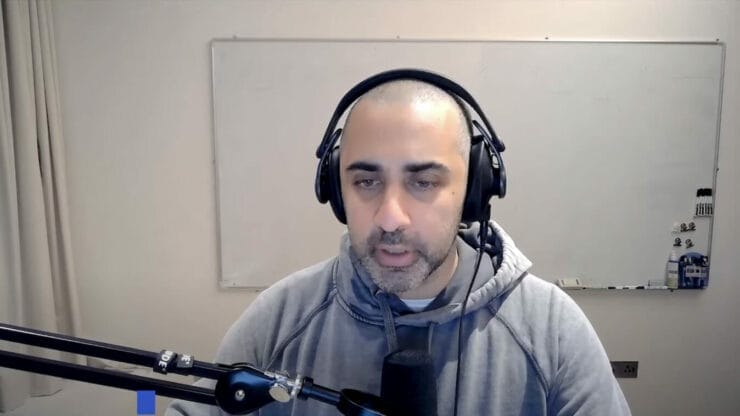At last year’s SmartCon, former Coinbase CTO and advisor to Chainlink Labs, Balaji Srinivasan, gave a crowd-favorite presentation on the concept of a “ledger of record” that could facilitate the global shift from a flawed “fiat information” model to a “cryptoinformation” model. This year, Srinivasan gave another fascinating talk about how oracles could be used to build decentralized cities or even countries, based on his new bestselling book, The Network State.
He began by posing the question: Can oracles be used for more than price data?
Though oracles were mostly theoretical five years ago, Chainlink’s industry-standard architecture now secures tens of billions of dollars in decentralized finance (DeFi). In Srinivasan’s view, DeFi is an excellent litmus test for determining other types of information that oracles can secure.
Of particular interest to him is censuses data for decentralized autonomous organizations (DAOs), startup societies, and network states – the latter of which would function like a social network wherein all participants choose to subscribe to a “society as a service” model of governance that uses its income to crowdfund a common interest, territory, or goal.
“You’re in theory able to get something that has the scale – in terms of population, and square footage, and income – of a nation state but it’s decentralized, just like Bitcoin,” he explained.
To illustrate how a network state of a few million people might gain diplomatic recognition, Srinivasan first pointed out that about 20% of countries in the UN have fewer than a million citizens, and the majority of UN countries have fewer than ten million citizens.
“Most people live in big countries but most countries are small,” he said.
Considering that geographic territories, as well as fiat and cryptocurrencies, use stats like census data and market cap to determine rank, Srinivasan postulated how a 1.7 million-person network state could rank among the world’s nation states:
“Just like a new coin would rank on CoinMarketCap if its market cap got high enough, a new network state would rank among the states of the world if its verified population got large enough.”
In order for this concept to become a reality, where network states have a large enough population to gain diplomatic recognition from nation states or legacy countries, they must have a reliable mechanism to prove the accuracy of their census data.
Srinivasan offered a two-part solution to create an auditable on-chain census for network states: (1) multiple-oracle networks using established measures of inter-rater reliability and (2) independent or third-party oracle audits of random population data subsets extrapolated to predict the network state’s true size.
Using these strategies, he explained, “You’re not just taking what’s on-chain on faith.”
While the idea of using oracles to create network states may seem far-fetched, Srinivasan used recent history to underscore the possibility that network states could one day exist.
“Of course you’d get laughed at the first time, the second time, the fifth time, but Bitcoin was laughed at too.”
To learn more about The Network State, visit thenetworkstate.com.
Watch Balaji Srinivasan’s full flagship presentation at SmartCon 2022.


